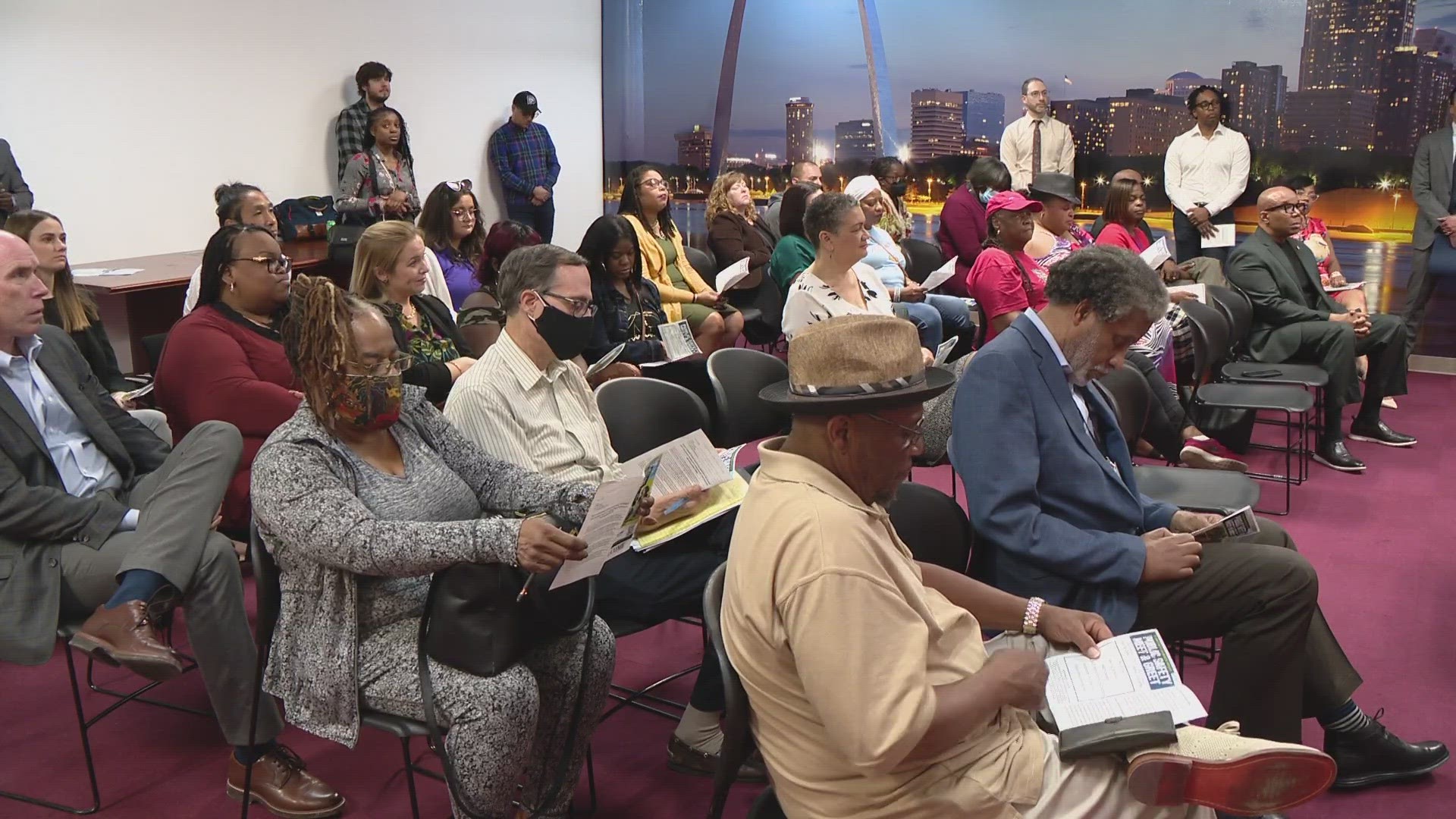ST. LOUIS — It’s a different approach to fighting crime that puts the power into the hands of the community. It's called Data Informed Community Engagement, a new concept St. Louis is investing in with hopes of finding solutions.
The program is taking off in Dallas, Newark, and now St. Louis. It involves everyday people working with community leaders to identify where crimes are happening and how to put a stop to them.
"You got 14-year-old boys riding around with AR-15s and they're not afraid to pull the trigger,” James Clark, with the Urban League of Metropolitan Saint Louis, said.
Candid conversation Thursday in a room full of community leaders, elected officials, and everyday people who just want change. They met at the Urban League of Metropolitan Saint Louis for the launch of a new initiative not sponsored by any business or organization. It's a grassroots effort.
"This is another way to invest in community and say, 'We trust you'. You’re just a much an expert about what goes on in your block as any scientists are that study crime trends,” said Jessica Meyers with the St. Louis Area Violence Prevention Commission.
She's talking about the Public Safety Collaborative, people from various neighborhoods being trained on what's called Risk Terrain Modeling. It focuses not on whose committing crimes, but places where they're happening.
"Why are the contexts and opportunities occurring at these places and how can we address those opportunities and mitigate those risks,” said Joel Caplan who came up with the concept. The Rutgers University Professor created technology that local people will use to identify what they're seeing and how often. "[To] find out how non-law enforcement approaches can be utilized to address these problems."
Those who are trained can input data into software that’s accessible on tablets or mobile devices. That data is then analyzed over time.
"Now we are then able to go to the Board of Aldermen, go to Jefferson City, go to Washington D.C. and say, 'Based on this data from these various perspectives, we need investment, we need resources here right now,” said Farrakhan Shegog who is spearheading the Public Safety Collaborative locally.
It's putting power into the hands of the people to take back their neighborhoods.
"It gives us an opportunity to make the table bigger, to bring more people into this issue and to do things a different way,” Meyers added.
The Center for Policing Equity and the City of St. Louis are footing the bill for the program.
A five-hour training will happen Friday. Organizers say they’re already at capacity. The program is expected to last in St. Louis for a few years.

